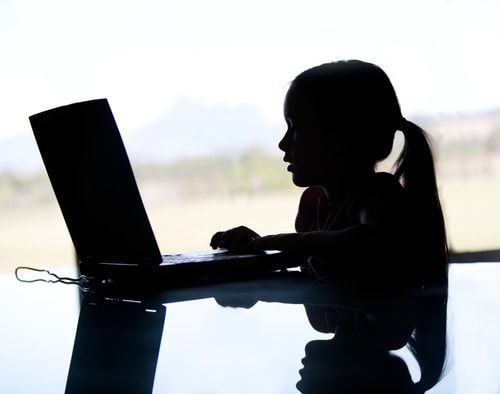
A charity is highlighting a campaign which aims to keep children safe online after 39 offences of sexual communication with a child were recorded by police in Cumbria in just over a year.
The pandemic has turned all our lives upside down in so many different ways.
For children, the internet has been an invaluable tool for staying connected, keeping entertained and studying. However, spending more time online increased potential harms and lockdowns have created a perfect storm for those who seek to exploit children in their online world.
The Internet Watch Foundation recently revealed that last year it was aware of 68,000 cases of self-generated imagery, a rise of 77 per cent on 2019 and self-generated imagery accounts accounting for nearly half (44 per cent) the imagery the IWF took action on last year.
In 80 per cent of these cases the victims were 11 to 13-year-old girls.
There are many reasons why some children and young people become involved in sexting, which is when someone shares a sexual message, naked or semi-naked image, video or text message with another person.
It doesn’t have to be a nude image of themselves and could be an image of someone else. Children have been spending more time online and using apps or social media sites more to talk to friends or others online.
Even with the easing of social distancing rules young people who are dating or in relationships will be speaking to their partners online, which could lead to more pressure for them to be sexting or “sending nudes”.
Other young people may want to explore more risky behaviour, either because they’re feeling bored or as a way of keeping in touch with others. Some young people experiencing online grooming or abuse may also be sending or receiving nudes or explicit content from people they don’t know.
Ground-breaking legislation
Under legislation that came into force in April 2017 following a campaign by the NSPCC, it is illegal for an adult to send a sexual message to a child. However, since the beginning of April last year Cumbria police alone have recorded 39 offences of sexual communication with a child.
Such abuse not only damages childhoods but its effects can last long into adulthood too, which is why helping to keep our children safe online is a key component for the It’s Not OK campaign in Cumbria.
The campaign is led by Cumbria Safeguarding Children Partnership and the NSPCC and encourages everyone to recognise the important part they can play in protecting children from harm online.
The It’s Not OK campaign promotes events and materials aimed at a range of ages and audiences including young people, parents, carers and professionals working with children and young people, with the aim to make people aware of online harms and how they can be reported, to help reduce all forms of child exploitation in Cumbria.
For parents and carers, regular online safety chats with your children are also crucial in talking about the risks involved with sharing nude or sexual images. These conversations will also help build their confidence in knowing that they can always come to you, another trusted adult or even Childline if ever something upsets or worries them.
Understandably, it can be incredibly distressing finding out your child has shared a nude or sexual image and it’s hard to know what to do straight away. It’s important to try and remain calm in these sorts of situations and not get angry.
Remember there are many reasons why a young person may want to send a naked or semi-naked picture, video or message to someone else. One 14-year-old girl told Childline: “I sent some naked pictures of myself to a boy that I was talking to online. I really regret it now because he took screenshots and says that he’ll show them to all my friends. I don’t know how to report him, I really don’t want my family to find out.”
So, if a young person or child does come to you, remain calm and listen, that is vital. Let them explain what happened and how it has made them feel. Tell them they’ve been really brave to share this with you and reassure them that you will do all you can to help support them through this.
Who to call
And know you are not alone either, you can always call the NSPCC helpline on 0808 800 5000 for support and advice or contact Cumbria police via 101.








